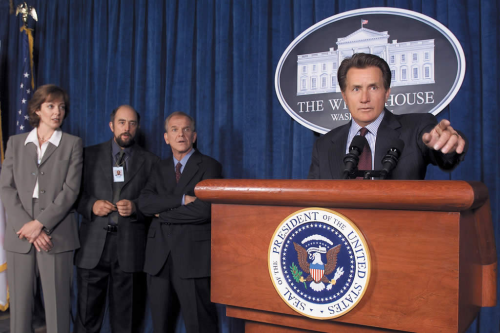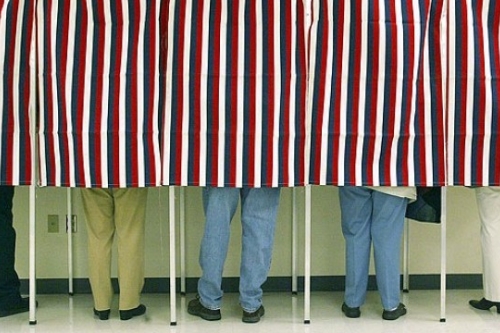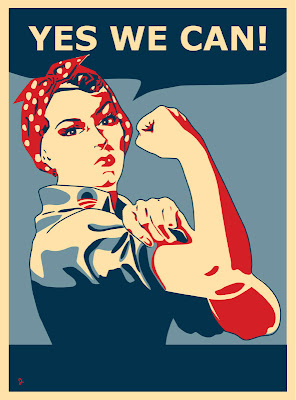
Here at Nanu Nanu, we're big fans of Aaron Sorkin's work – especially The West Wing. With that, and the US election in mind, we've put together a list of our favourite West Wing episodes, and written just a few words about why. Elyse Jamieson Noël Season 2, Episode 10 This was an incredibly difficult decision to make as, in my opinion, the first four seasons of The West Wing are some of the finest television episodes ever made. For illustration, it’s important to note that I’d bought the entire box set having only watched the first seven episodes of series one. However, I eventually narrowed my favourites down to the series 3 finale, ‘Posse Comitatus’ (I love you, CJ), and series 2’s Christmas episode, ‘Noël’. Although neither are the funniest or most politically driven, these are episodes I specifically revisit time and time again. The latter came out on top. At least for today. ‘Noël’ centres on Josh discussing with a psychologist what turns out to be post-traumatic stress disorder, jumping back and forth between that meeting and flashbacks to the events that triggered him. Bradley Whitford is fantastic in his portrayal of the confused and scared deputy chief of staff – so much character development happens in the 45 minutes available. It’s also an episode which has a wonderful aesthetic, and that makes it an absolute pleasure to watch, even if it is a little upsetting in places. Of course, for light relief, there is always Bartlet’s desire to personally sign all 1,110,000 holiday cards sent by the office of the President. ‘Noël’ has got it all. Angus Niven 20 Hours in America (Parts One and Two) Season 4, Episodes 1 & 2 I understand this is annoying, being asked to pick one episode and choosing two, so apologies to everyone offended (tweet me some abuse if it makes you feel better) but it’s a two parter and impossible to separate. ‘20 Hours in America’ was the first episode that came to mind when I was asked for my favourite episode. I of course considered others but I just kept coming back to the fourth season's premiere. This was the first episode of The West Wing I ever watched back in dark days of the early '00's on More 4. I watched it before I knew what a stump speech was or a caucus or what the White House Deputy Chief of Staff did. I had no idea what was going on and yet I was totally engrossed in this episode, I was engrossed in plots I jumped in on half way through and characters I knew nothing about. That is pretty flipping special, I knew I had to watch the show. Josh, Toby and Donna are all stranded when the motorcade leaves an Indiana stop on the campaign trail. Missing the motorcade leads to them missing the plane which leads to 20 hours of shenanigans. Because of their absence Sam is having to fill Josh's role
while the President and Leo struggle with the aftermath of an ill-advised assassination and the loss of Mrs Landingham. My synopsis obviously doesn't do the episode justice. ‘20
Hours in America’ is a prime example of The West Wing at its best, showing off the ensemble, somehow highlighting the characters in the midst of some truly gripping drama. Oh and did I mention that it’s also super funny? I probably didn't, but the Josh/Toby/Donna plot really shows off Sorkin’s love affair with 1940's Screw Ball comedies. Richard Hanrahan 17 People Season 2, Episode 18 It's a tough choice, as much like a father cannot choose their favourite child, for with The West Wing I would have around 154 equally talented, beautiful children, and tell 153 of them that I don't like them. Except some of the kids that hung around smoking and doing drugs behind the school when Aaron Sorkin wasn't watching them. The opening episode is quite brilliant, as Jed Bartlett makes his incredible entrance, or perhaps my favourite would be one of those festooned in light relief – where its open door policy at the White House, and all the staff have to listen to the crazy ideas that end up making sense to them. Or when John Goodman turns up (!). But I'm not going to go for spectacle, or glitz, or humour – the best episode has to revolve around my favourite character, Toby. He is the powerhouse behind the entire administration, whose idealism and intellect guarantee the moral authority with which the administration deserve. But when Toby, using spare brain resources while doing other important things, deduces why Jed Bartlett might not run for a second presidency, he creates the storyline that defines the maturity for the rest of show. And all in one catch of a bouncing ball. Finlay Niven Posse Comitatus Season 3, Episode 21 The last episode of the third season of The West Wing is the perfect mix of all that makes the show great. CJ’s relationship with her bodyguard comes to a head with a slim glimmer of hope for her private life dashed in one of the cruellest story lines on the show. The death of Simon Donovan in a senseless random crime is juxtaposed with the cold calculated assassination that President Bartlet and everyone involved is clearly uncomfortable organising. Also gearing up in this episode is the fourth coming election and in one of the episodes best scene’s President Bartlet
meets his opponent Governor Ritchie. The Governor is smacked down
in typical Bartlet style, as seen here. The West Wing was truly in full swing during this season and the next. For me everything seems to just work here. It was a difficult choice but when I sat down to re-watch this afternoon, so many of this episode’s moments stood out as exceptional.



